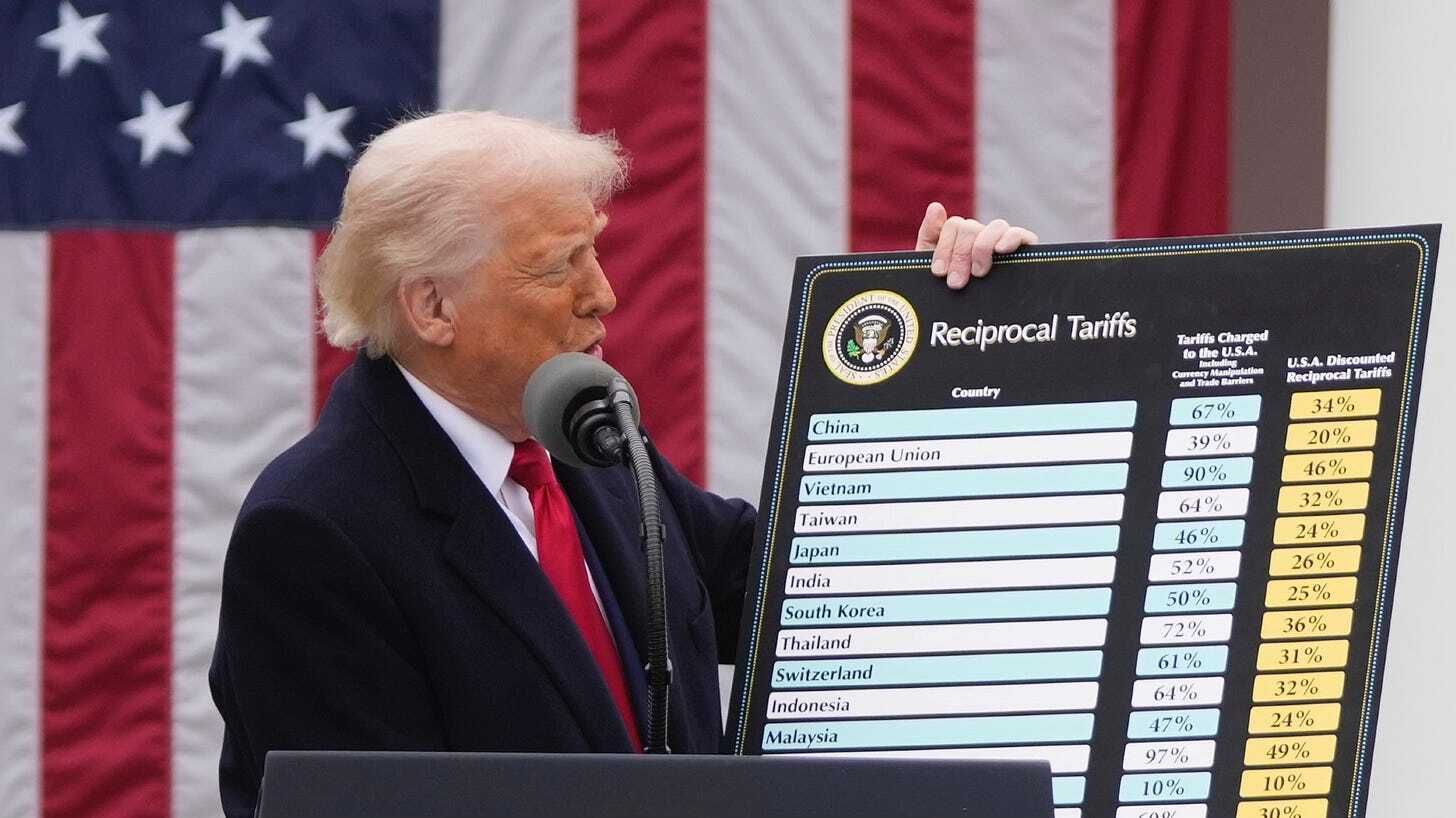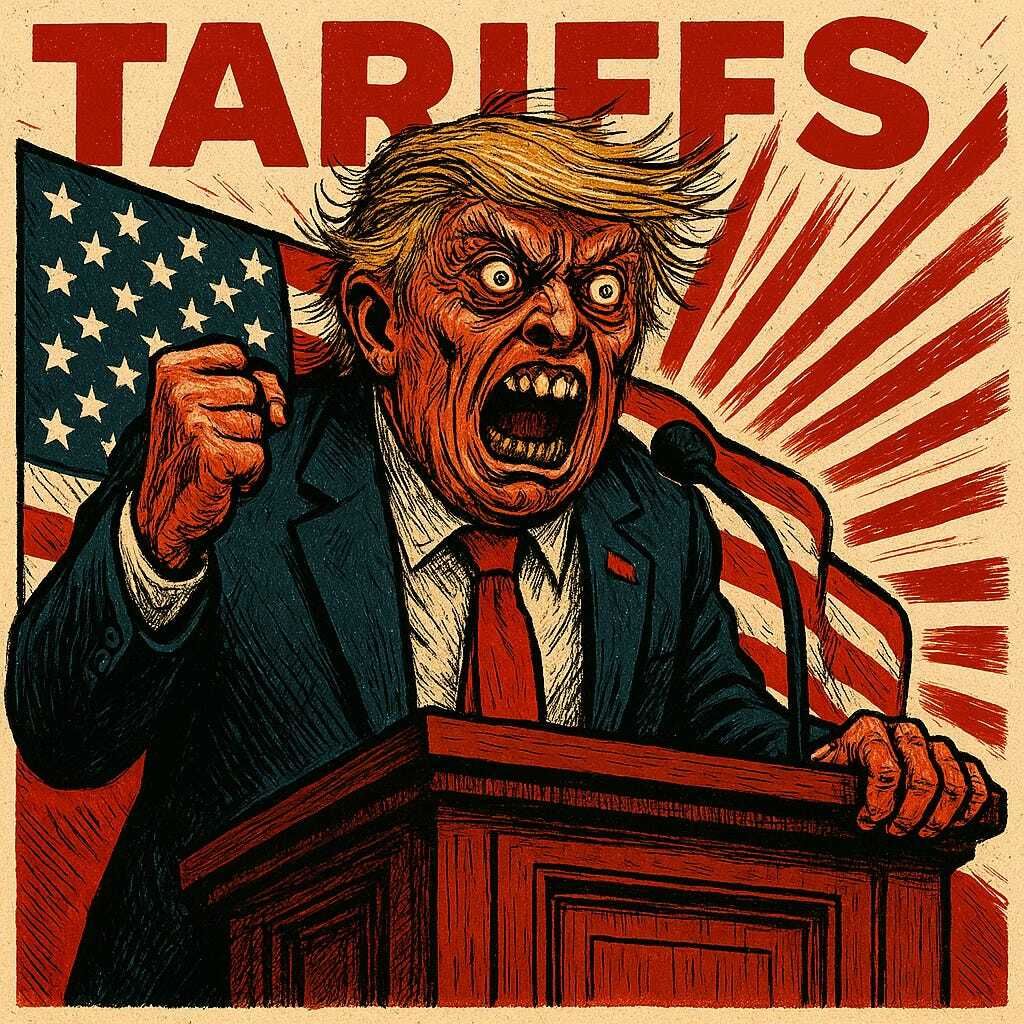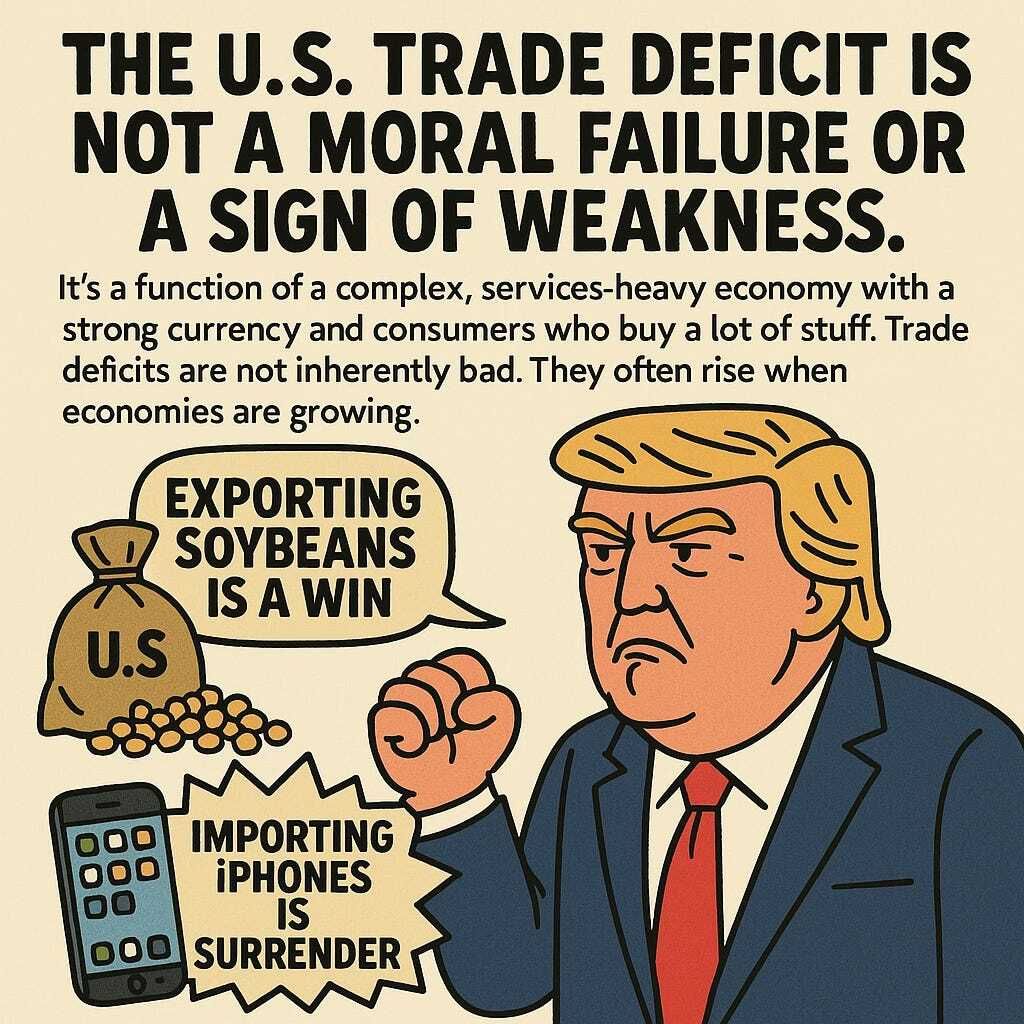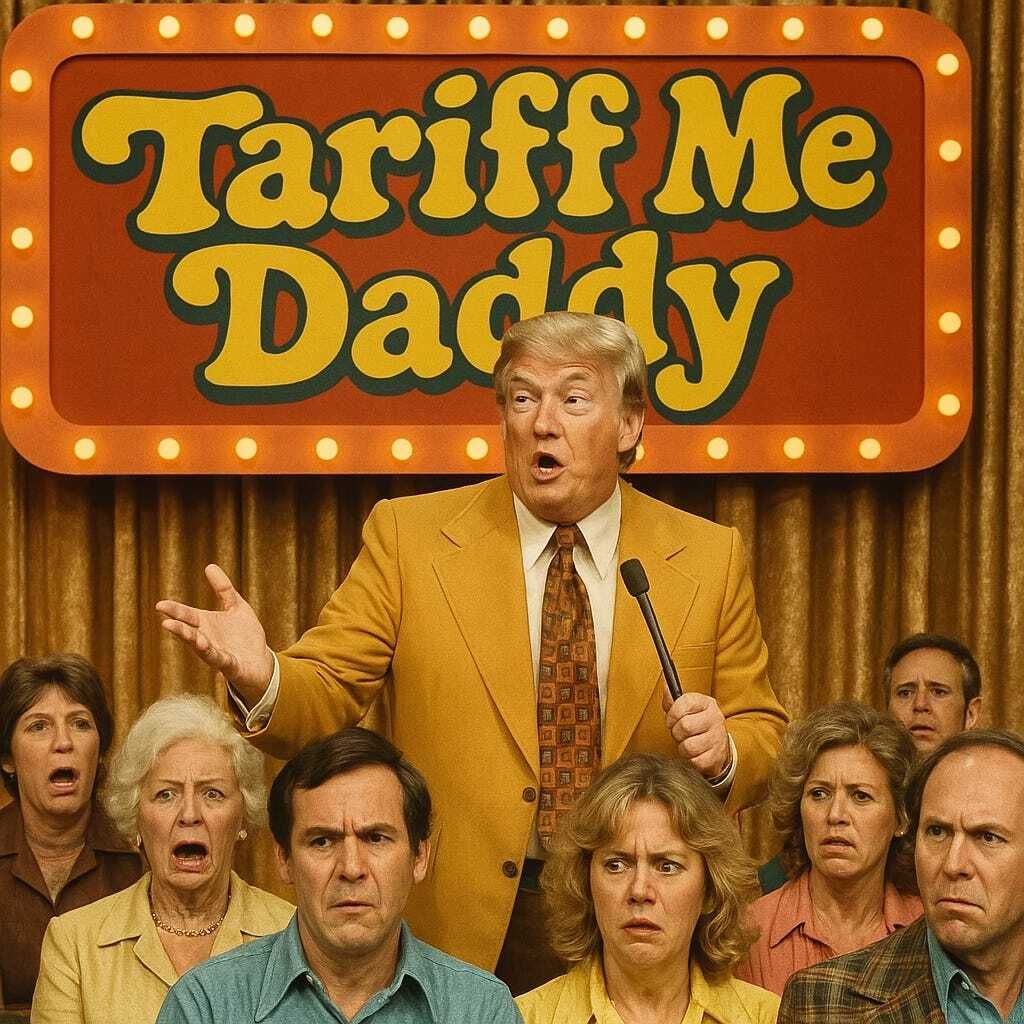
Warning: This is a long one. Pour a beverage, maybe two. We’re going to war—with reality.
Donald Trump is back on his protectionist bullshit. This time, it’s not just about steel or aluminum or that infamous dishwasher tariff that made appliances cost more and break faster. No, in what the White House has taken to calling "Liberation Day," the Trump administration unleashed a torrent of tariffs so sweeping, so economically deranged, and so nakedly authoritarian that it might just deserve its own chapter in future economics textbooks.

Spoiler: It’ll be in the "What Not To Do" section.
Let’s get right into the numbers, because the math here is as magical as it is terrifying.
Trump's April 2, 2025 tariff package is composed of two main parts:
A baseline 10% tariff on everything imported into the United States.
An additional set of "reciprocal tariffs" on 57 countries, with rates ranging from 15% to a stomach-churning 49%, on top of the base 10%. That puts the effective tariff rate on some Chinese goods at 54%.
And the justification? Not national security. Not trade cheating. No, Trump has declared a national emergency over the trade deficit, invoking the International Emergency Economic Powers Act (IEEPA) to bypass Congress entirely. Because what else says "stable genius" like solving a self-invented crisis with economic self-harm and executive overreach?
You read that right: Trump used emergency powers to declare that buying too many TVs from South Korea is on par with a nuclear attack.
The problem, of course, is that Trump doesn't understand trade. At all.
He still views the trade deficit like it’s a scoreboard where the U.S. loses every time we import something. It's the kind of thinking you might expect from someone who never got past Monopoly. And in this case, he’s trying to bankrupt the entire board.
The U.S. trade deficit is not a moral failure or a sign of weakness. It’s a function of a complex, services-heavy economy with a strong currency and consumers who buy a lot of stuff. Trade deficits are not inherently bad. They often rise when economies are growing. But in Trump's cartoon version of economics, exporting soybeans is a win, and importing iPhones is surrender.

That logic is so broken it's practically a TikTok conspiracy.
Now let’s talk implementation. The tariff rollout took effect in two stages over one week. Businesses had zero grace period. Some of the targeted nations weren’t even notified in advance. And countries like Canada and Mexico, supposedly exempt under the USMCA, still had most of their goods hit by earlier tariffs under a separate pretext.
If you’re wondering what strategy looks like in a Trump trade war, picture a toddler swinging a sledgehammer while blindfolded.
"Reciprocal" Tariffs: Trump’s Make-Believe Math
Commerce Secretary Howard Lutnick (a man whose economic theories appear to be cribbed from the back of a cereal box) claims the tariff rates are "reciprocal" and calculated based on the trade barriers of our partners. Only problem: no one outside the White House can replicate the math. The methodology is a black box. It might as well be Ouija board economics.
But hey, at least Trump didn’t completely spare Russia. Oh wait—he did. Because U.S. sanctions already restrict trade, they got a pass. Totally not suspicious.
Meanwhile, allies like Japan, South Korea, and the EU got slapped with tariffs up to 25%. Poorer countries like Cambodia and Madagascar got roasted with some of the highest rates, despite having zero capacity to retaliate. It’s like bullying the kid who brought a pencil to a gunfight.
Let’s be clear: this isn’t economic policy; this is autocratic cosplay. Trump has realized that tariffs give him something Congress can’t veto and courts can’t easily block. He gets to look tough, wave a flag, and unilaterally alter the economy with a signature. It’s the closest thing to monarchy America allows. Tariffs are Trump’s executive orders on steroids.
And like steroids, they have side effects.
The Fallout: What Happens When You Tax Everything
Every major economic sector is impacted:
Manufacturing: Auto, aerospace, and electronics firms are choking on higher input costs. Stellantis has already laid off 900 U.S. workers in response.
Consumer Goods: Apparel, electronics, appliances—they’re all going up in price. Your next TV? Congratulations, it costs $300 more.
Agriculture: Farmers are bracing for the backlash as foreign markets retaliate. Expect another $30 billion bailout if you’re into repeating history.
Energy: Yup, even oil. Because if there’s one thing America loves, it’s jacking up gas prices in an election year.
The Peterson Institute, Brookings, Moody's, Goldman Sachs, and even the IMF all agree: this will drag growth, spike inflation, and kill jobs. Moody’s estimates a GDP hit of up to 2%, and the IMF warns global GDP could shrink by 0.5%. Household costs? Up an estimated $3,000/year for the average family.
So much for "America First."
And in case you’re thinking "well at least the deficit will shrink," sorry to burst that bubble. History says otherwise.
A Little Thing Called Smoot-Hawley
Trump’s playbook seems lovingly borrowed from the 1930s disaster known as the Smoot-Hawley Tariff Act, a bipartisan screw-up that raised tariffs on over 20,000 goods. The global response? A cascade of retaliatory tariffs, a collapse in global trade, and a lovely little addition to the Great Depression.
Economists still cite it as a cautionary tale. Trump appears to cite it as inspiration.
Power Trip, Not Policy
There’s no negotiating table here. No Phase One deal. No art, no deal. This is a blunt instrument, wrapped in red, white, and blue, wielded by a man who believes economic complexity is a deep state hoax. Tariffs aren’t just policy anymore—they’re punishment. And if you’re an ally, a poor country, or a working-class consumer? Tough.

And yet, this plays beautifully to the MAGA base. It’s simple. It sounds tough. It channels grievance. It can be shouted from a rally stage in three syllables: "They stole from us!"
The sad reality is that Trump is turning trade policy into authoritarian theater. Tariffs are now tools of political reward and punishment. No need to consult Congress. No need to face the courts. It’s economic nationalism by executive decree.
And it’s going to cost us.
Sources & Further Reading:
Coming Up Next: Stay tuned for a breakdown of how MAGA influencers are planning a parallel economy based on precious metals, AI influencers, and cultish vibes. It gets weirder. You won’t want to miss it.